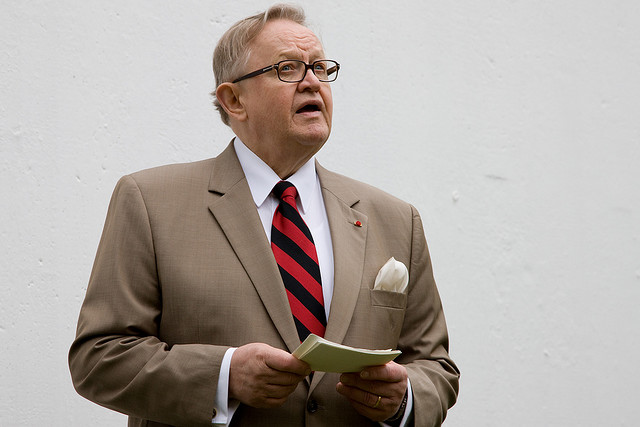
In a recent article, The Economist suggests that efforts to resolve international conflicts are increasingly being outsourced to NGOs such as the Centre for Humanitarian Dialogue (HD Centre) or the United States Institute for Peace (USIP).
While we at the ISN are proud to have our partners mentioned among the leading conflict mediators — and grateful, as ever, to USIP and HD Centre for sharing their expertise with us in the form of case studies, practical guides and research reports — the Economist raises a serious question. Have governments really lost their taste for mediating conflicts? Is the UN really as paralyzed by competing political agendas as the article suggests?
Even as private organizations play a bigger role in peace processes today than they did in the past, governments and the UN are hardly less active in this area. Consider the following:
- Most of the leading organizations in conflict mediation are largely funded by governments. In addition to HD Centre and USIP, the Economist also mentions the Carter Center‘s Conflict Resolution Program and the Crisis Management Initiative (CMI), founded by Martti Ahtisaari of Finland. The large majority of funding for CMI, USIP and HD Centre is provided by governments such as the US, Norway, Finland, Switzerland, and the UK. Though these organizations may be legally private and technically independent from their donors, to call them non-governmental organizations is misleading. With public funds come semi-public mandates, and it stands to reason that governments are using the work of these “NGOs” to improve their reputations as responsible states.
- In 2008, the UN established the Mediation Support Unit (MSU). The office — part of the UN Secretariat’s Department of Political Affairs — has, since its creation, assisted dozens of UN mediation processes, maintained a group of technical experts and developed a roster of dozens of potential mediators. While it is true that, at the political level, UN efforts at conflict resolution are often hampered by disagreements among member states, at the operational level, the UN Secretariat and its staff are as active a player as ever. For a good overview of MSU’s activities, see its Annual Report 2010.
- On 22 June 2011, the UN General Assembly adopted its first resolution on mediation. Introduced by Finland and Turkey, which lead a group of UN countries called The Friends of Peace Mediation, the resolution aims to increase the role of mediation in the settlement of disputes. The resolution calls on the UN, its members states, and regional organizations, among others, to strengthen their mediation capacity and better coordinate their efforts. The unanimous adoption of Resolution A/RES/65/283, after months of intense negotiations in New York, shows that governments are still very much interested in conflict mediation.
I agree with the Economist that for tactical reasons governments may leave the floor of conflict mediation to their “private” organizations. On the strategic level, however, they remain engaged.
Organizations providing mediation support are indeed flourishing. But this does not mean that governments and the UN have retreated. NGOs and private mediators have become more professional, which has allowed governments to build on them. What we are seeing are public-private partnerships, not the “privatization of peace”, as the Economist has it.
Governments have not “handed over” mediation to private organizations; private organizations have successfully lobbied for a greater role. After all, lest we forget, conflict mediation can be a lucrative business.
Listen to an interview with Simon Mason, mediator and senior researcher at the at the Center for Security Studies, on Swiss Experiences in Peace Mediation, Part One and Part Two.


One reply on “Privatizing Conflict Mediation? Not Really”
Talking about the leading conflict mediation organizations, I forgot to mention swisspeace, another ISN partner, who does research, consultancy and training in the area of conflict analysis and peacebuilding. Are there other important players I should name?